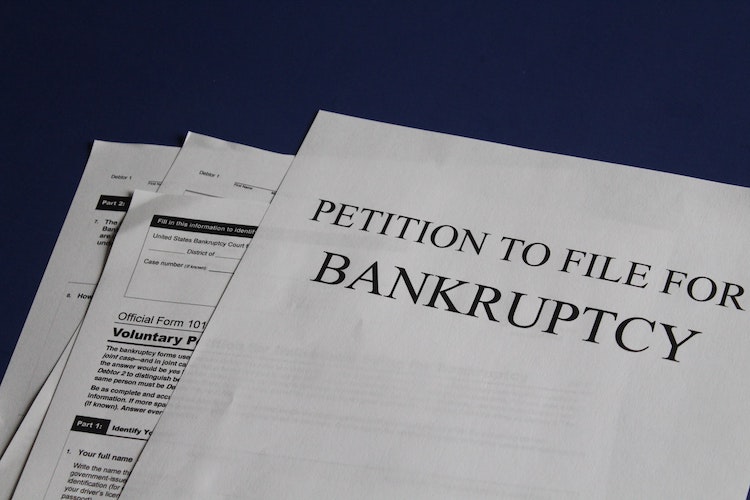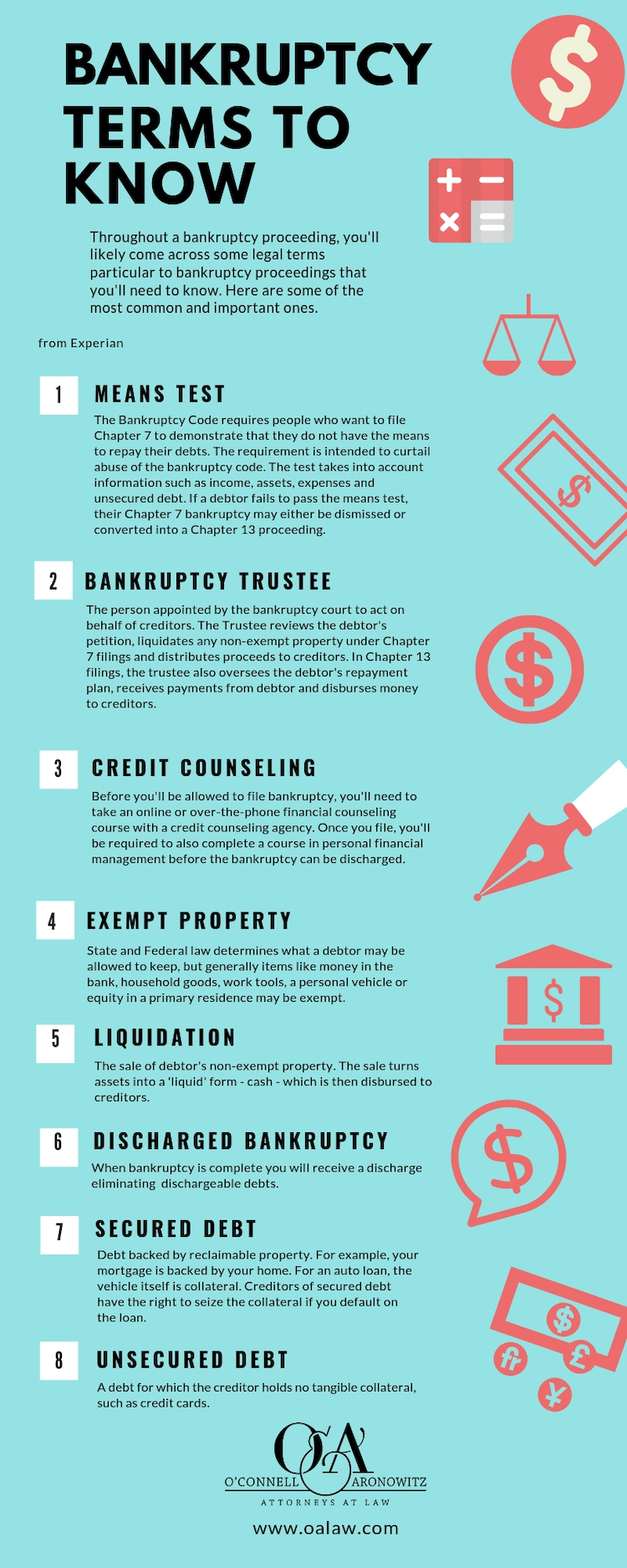Does Bankruptcy Ruin Your Life?
Does bankruptcy ruin your life? No, but it’s never easy. If you’re facing the terrible prospect of bankruptcy, follow these tips to start building back up.
While the word carries a large stigma with it, declaring bankruptcy isn’t the end. You don’t suddenly lose the ability to function in the world. Things are just different.
Whether brought on by unemployment, unexpected life events, or a volatile financial market, the first thing to do after bankruptcy is start building yourself back up. Since most individuals who end up having to declare bankruptcy aren’t left out in the cold with no cash, it’s possible to start fresh.
Will bankruptcy ruin your life? It doesn’t have to. But you’ll have to get through the bankruptcy process.
Why declare bankruptcy
Bankruptcy laws are actually there to protect people who end up with more debt than they can pay. Most people who end up filing for bankruptcy aren’t actually wealthy. The median income is under $42,000 regardless of which bankruptcy chapter you’re filing under.
Even though filing for bankruptcy gives you the opportunity to start over, it impacts your credit, and may make it harder to use money in the future. It stays on your credit report for 7-10 years.
There are a few different types of bankruptcy an individual can file under, but the most common are Chapter 7 and Chapter 13. Both get you back to zero.
Chapter 7
A preferable option for people with low incomes and not many assets, Chapter 7 bankruptcy lets you divide your assets into exempt and non-exempt property. This lets you keep certain exempt items as you sell off others to pay your debts. This may let you keep your house and car and let you continue getting benefits you’re already collecting.
Non-exempt items are usually cash, investments, and any extra assets. For example, if you own two homes, you’d keep your primary residence, but have to sell your second home.
Certain portions of your debts may also get discharged by a judge. The total you’ll have to liquidate to pay your debts can vary as a result.
Chapter 7 bankruptcy hits your credit score immediately, but you have the ability to build it back up over time as your financial situation improves.
Chapter 10
While with Chapter 7, you repay your debt all at once, Chapter 10 lets you pay it off over time. For those with higher incomes, Chapter 13 lets you create a three- to five-year repayment plan with creditors. Once that’s established, any remaining debt gets erased.
If, at any point, you stop meeting the requirements of the repayment plan, creditors can start asking for the amount in full. Any relief you receive, by having a portion of your debt eliminated, goes away.
Related: Facing Foreclosure? What You Need to Know
Bankruptcy and home ownership
The good news is, if you’re already a homeowner when filing for bankruptcy, you’ll likely keep the house. Issues can arise if you want to sell it since bankruptcy proceedings shift the control of your home to the court.
If you declare bankruptcy before you own a home, the damage done to your credit may prevent you from securing financing to purchase a house.
There are ways around both of these issues, but it requires planning and patience.
Buying a home
Since bankruptcy impacts your credit score, it may delay your ability to make large purchases. Financing anything from a car to a house is harder when your credit score is lower. The good news is, you can build it back up.
If you’re ready to buy a home, but still have a bankruptcy on your record, the best option is to plan ahead. Check your credit score regularly to make sure everything remains correct. You don’t want an error making your credit look worse than it actually is.
Use credit cards to start reestablishing your credit. Only spend enough each month where you can afford to pay the full bill. This can counter some of the damage to your credit score from declaring bankruptcy.
Don’t try to buy while your bankruptcy case is still in court. You are ineligible for a mortgage until after you get a bankruptcy discharge. This is a court order that releases you for any liability on certain debts. Basically, it’s the official document that says you’re excused from paying a portion of your debts.
You may want to wait two years after declaring bankruptcy before trying to buy a house. This gives your credit time to heal, and you time to establish good financial habits a lender will want to see.
Selling a home
You might not think selling your home during bankruptcy presents an issue, but it can. If you’re filing Chapter 13, you actually don’t control any of your assets even if you get to keep them. Both the court and your bankruptcy trustee have control. You’ll need their permission to sell or refinance.
It doesn’t matter if you’d already put into motion plans to sell or were about to foreclose. These actions get delayed or even cancelled during bankruptcy proceedings.
To go through with the sale, you not only need permission from the court, but you have to notify your creditors. Then, you must keep everyone in the loop on the details of the sale. Once sold, the money you make will go to your creditors to pay your debt.
If you owe more than your home is worth, you won’t see any cash from the sale. However, if you owe less than the sale price, you may end up with an easy way to quickly pay off your debt and pocket a little cash at the same time.
See also: 15 Tips for Avoiding Foreclosure
How to not let bankruptcy ruin your life

Housing isn’t the only area people may worry about when it comes to bankruptcy. Buying or selling a home are major concerns, but individuals may wonder about work and benefits as well.
Employment
Bankruptcy should not impact your ability to get a job, in most cases. Only a private employer can refuse to hire you based solely on a bankruptcy filing. If a private employer does decide to do this, they have to provide a reason why they decided not to hire you. Your bankruptcy needs to somehow create ‘just cause’ for the refusal.
You also cannot get fired from your current job because you’re going through bankruptcy proceedings. In fact, they don’t ever need to find out it’s happening unless you decide to tell them or a creditor is garnishing your wages.
Federal benefits
This is a gray area for those declaring bankruptcy. Some are protected, but others are not. For those under the protected umbrella, the money does not count as part of your income. It’s not factored into the money you have to pay off debts, so you stop receiving it.
The three primary benefits that are usually protected are:
- Social Security
- Disability
- Unemployment
Because you pay into social security and disability when you pay your income tax, it’s considered against the law to withhold those benefits.
For most, unemployment benefits are also not considered income. You should also get approved for unemployment even if you file for it during bankruptcy proceedings.
There is a slim chance unemployment will get lumped into your income. It only happens when a tricky combination of circumstances come into play. They’re rare.
Moving on after bankruptcy
Does bankruptcy ruin your life? It certainly doesn’t have to. In fact, it’s good news to know that bankruptcy is more about getting a second chance with your finances than suffering from penalties. With the right attitude, a lot of research, and some careful planning, you can begin to feel more in control of your future financial decisions.
Further reading:
Ready to Get Started?
Sell as-is. Pay zero fees to Sundae. Move on your time. No repairs, cleanings, or showings.

